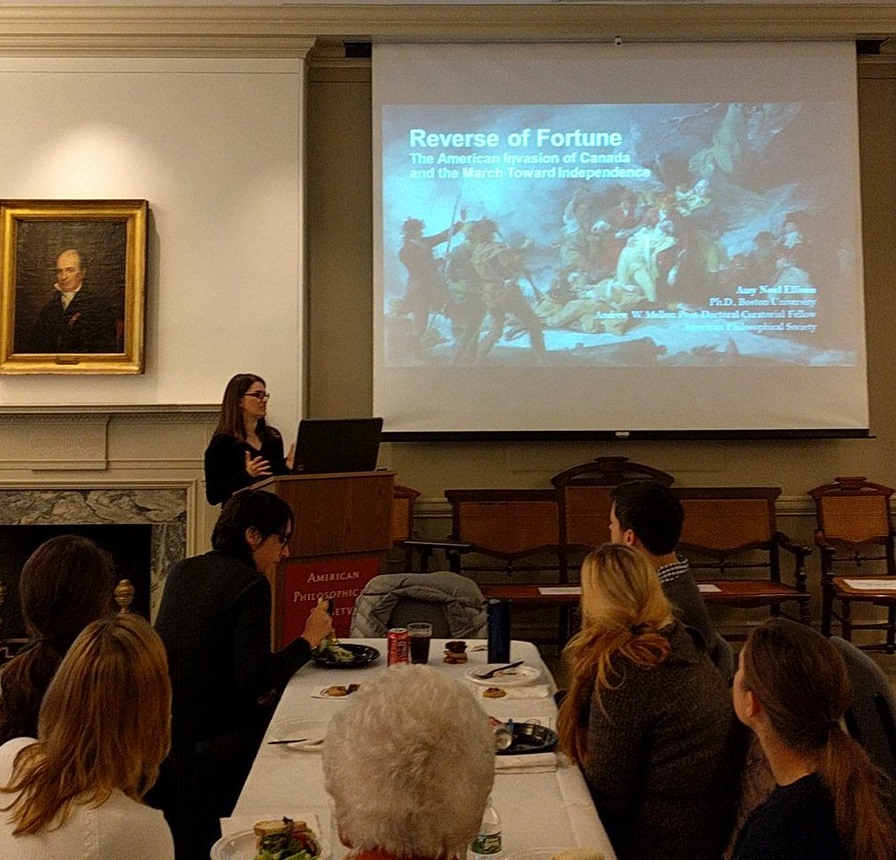Lunch at the Library
The American Philosophical Society hosts a spring and fall series of informal lunch presentations on new research and emerging topics by and for APS staff, research fellows, and other scholars. From the U.S. Constitution to 18th-century French mathematicians, the topics are as varied as the research interests and collections at the APS.
Lunch and the program are from 12:00 to 1:00 p.m. in Benjamin Franklin Hall (427 Chestnut Street, Philadelphia).
APS Lunch at the Library invitations are available to Friends of the APS who contribute at the Supporting Circle and beyond ($500+). Registration is required. RSVP to Adrianna Link at [email protected].
2023 Calendar
February 1: Ed Gray, APS NEH Sabbatical Fellow, American Philosophical Society, "Benjamin Franklin's Money: A Financial Life of the First American"
February 23: Gregory Nobles, Georgia Institute of Technology, "The Education of Betsy Stockton: An Odyssey of Slavery and Freedom"
March 15: Rebecca Cypess, Mason Gross School of the Arts, Rutgers University, "Music and Friendship in Benjamin Franklin's Paris: The Brillion Manuscripts at the American Philosophical Society"
2022 Calendar
February 17: Phil Mead, Museum of the American Revolution, "Considering the 250th at the Museum of the American Revolution"
September 16: Warren Hofstra, Shenandoah University; Mohammad Obeid, Shenandoah University; Kevin Hardwich, James Madison University; and JJ Ruscella, EVP at AccessVR, "Electing the President: The Debates on the Electoral College at the Constitutional Convention of 1787 in Virtual Reality"
2020 Calendar
January 15: Kristen Regina, Arcadia Director of the Library and Archives at the Philadelphia Museum of Art, "Evolving the Library and Archives"
February 12: Larry Tise, University of North Carolina at Chapel Hill, "The First American Coloring Book(s): Theodore de Bry's Illustrated America, 1590-1602"
March 11: Audra Wolfe, Philadelphia-based writer, editor, and historian, "Freedom's Laboratory: The Cold War Struggle for the Soul of Science"
CANCELED: April 1: Carlo Ginzburg, Professor Emeritus at the University of California, Los Angeles, in conversation with Patrick Spero, Librarian and Director, American Philosophical Society Library & Museum [Note: this event will be rescheduled for March 2021]
June 24: Bethany Farrell, Digital Franklin Research Fellow, American Philosophical Society, "The Art of Making Data for Every Scholar’s Pocket: Opening Benjamin Franklin’s Account Books"

